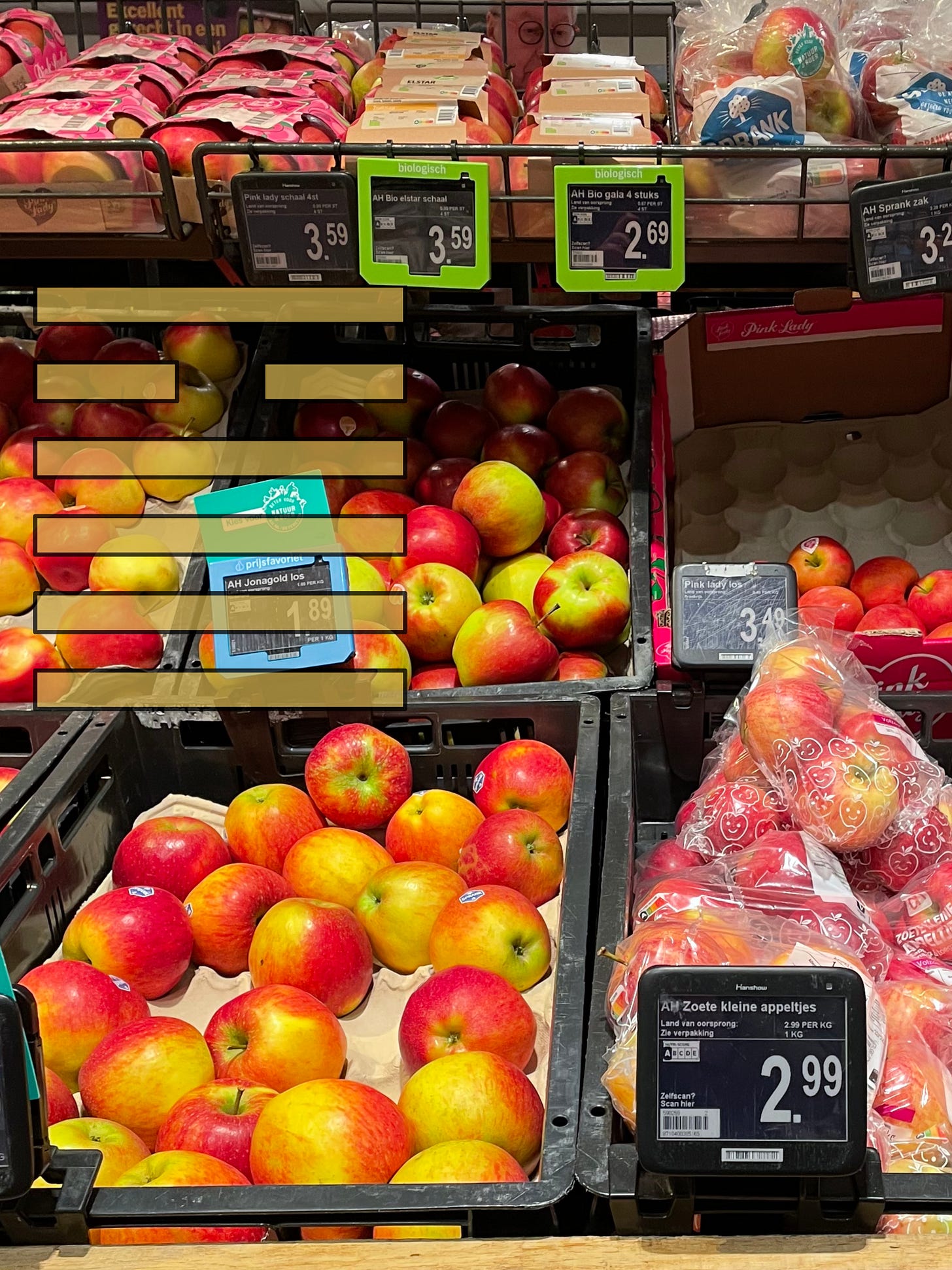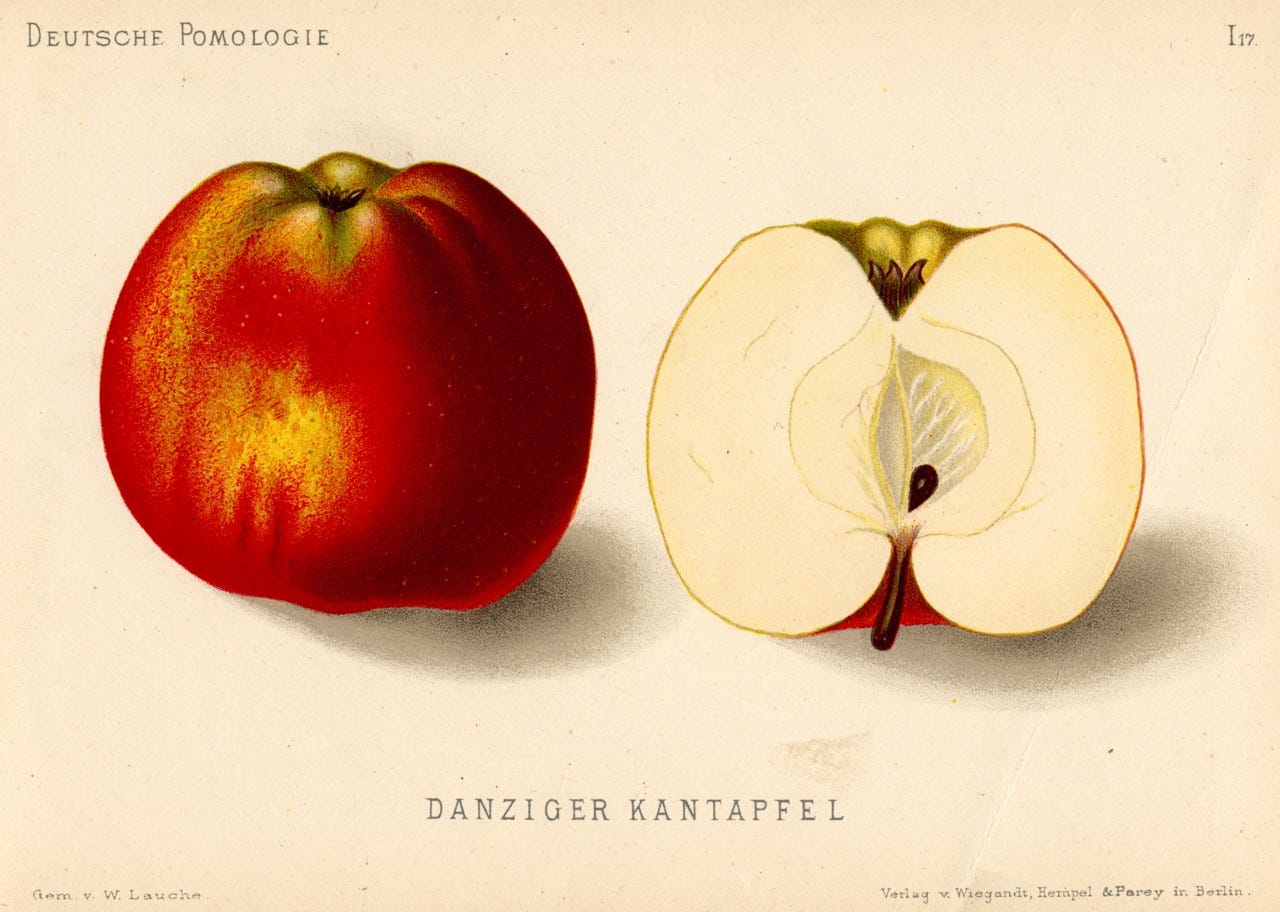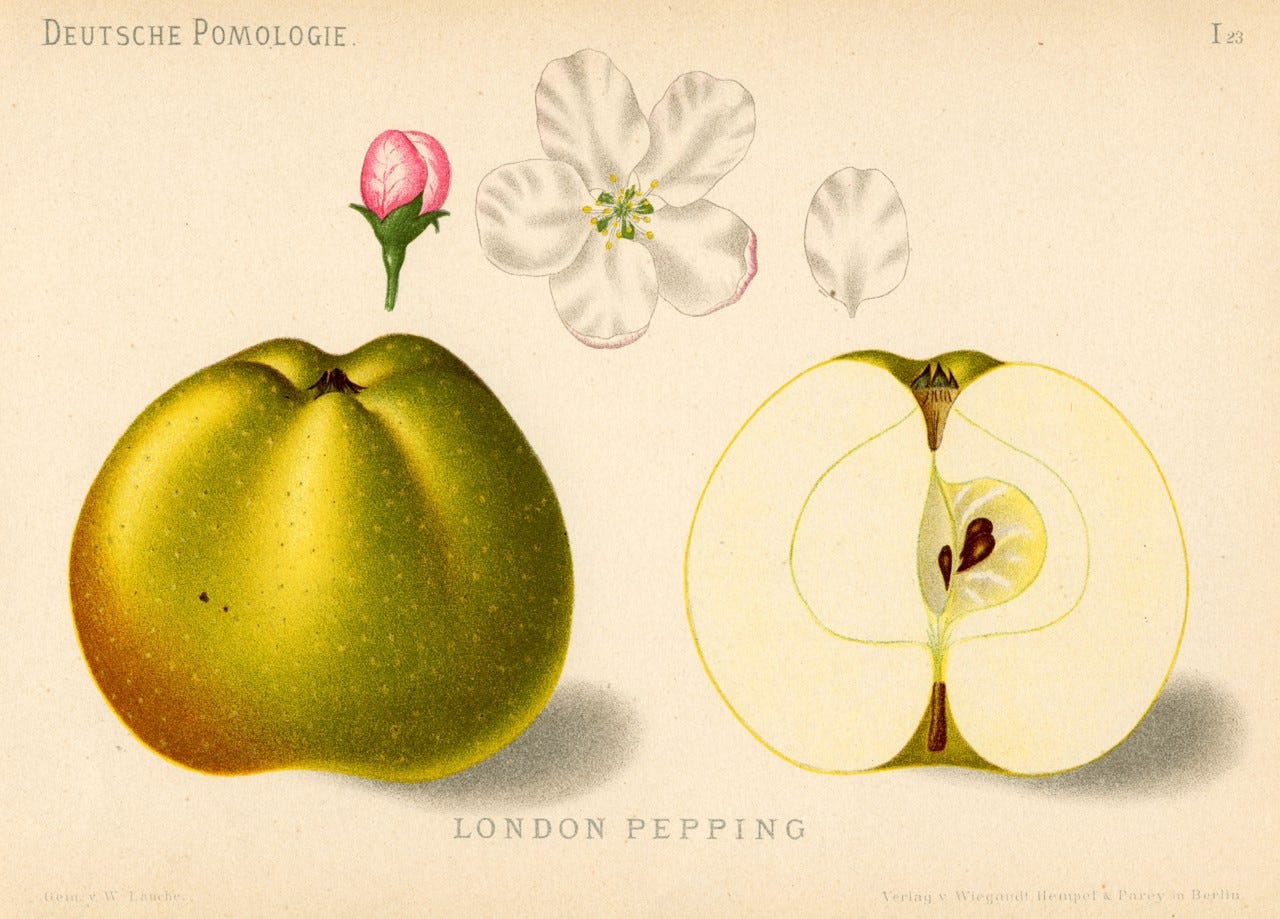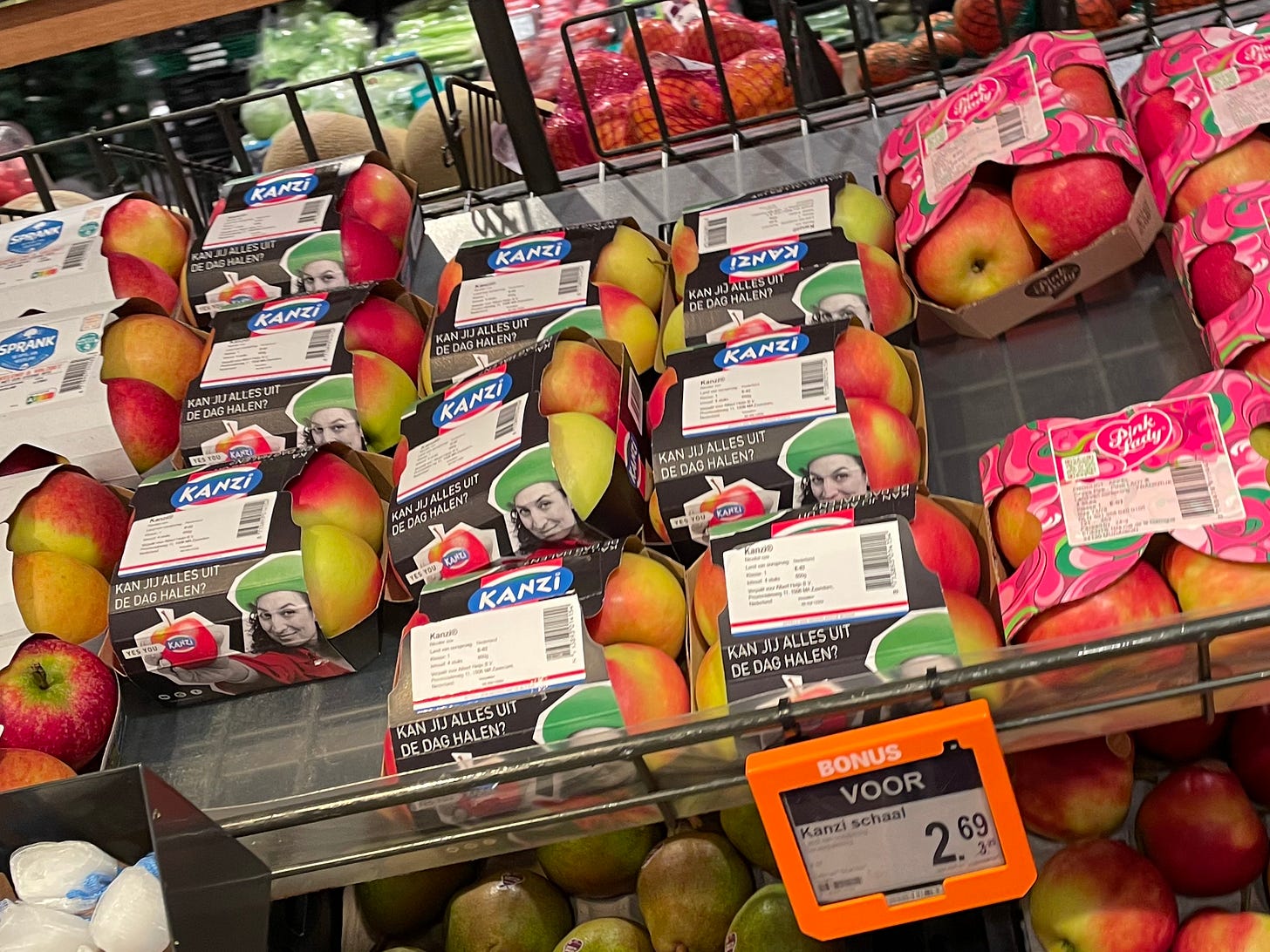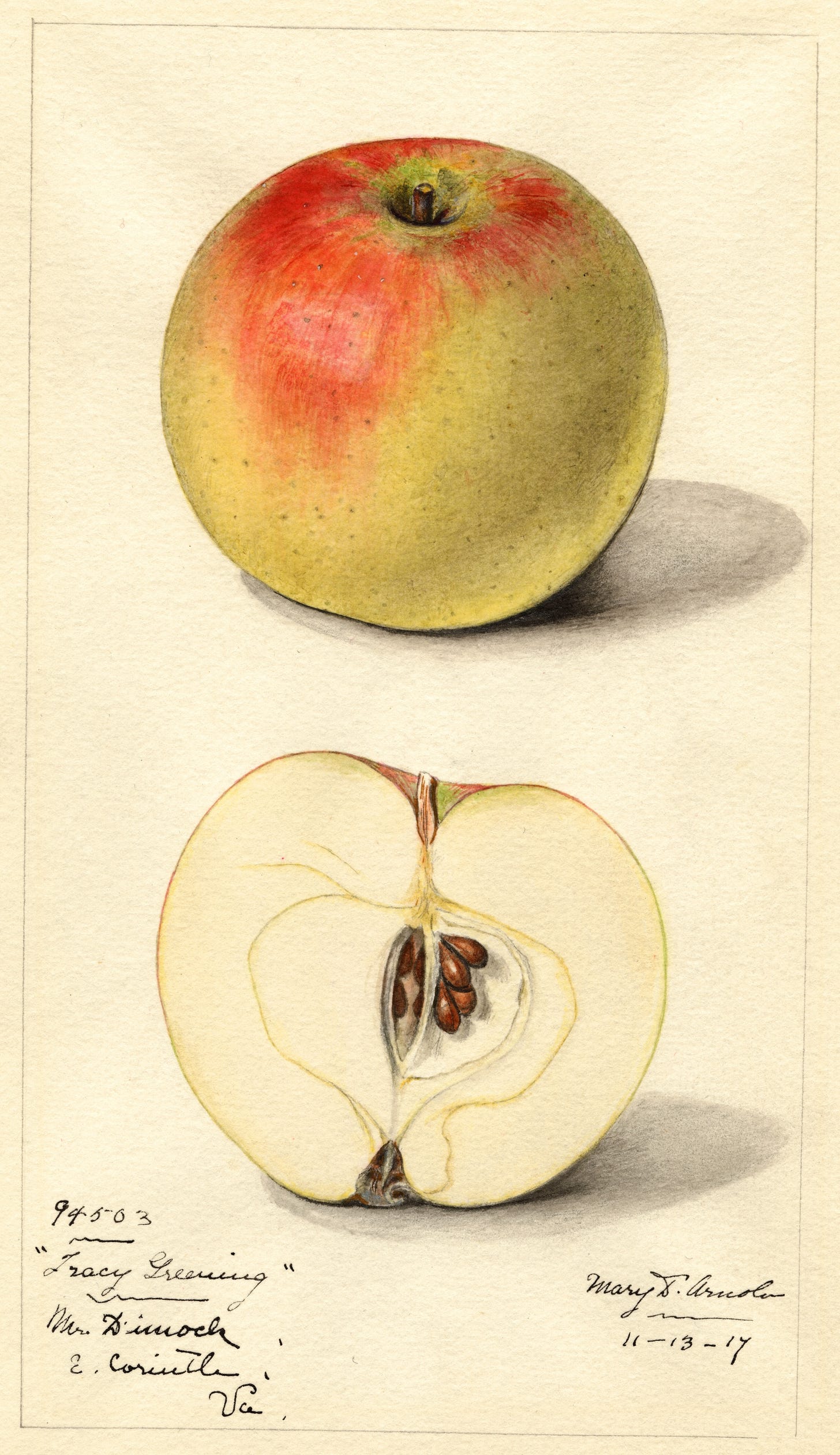Today, on New Year's Eve, a post about an abundant harvest in the past tense. Tomorrow, on New Year's Day, the sequel: about harvest in the future.
THE IMAGE of two trigrams: below Heaven, above Fire. The sun is high in the sky. The dry warmth of late summer allows fruits and seeds to ripen. Thicker, heavier and sweeter they become. If you take your time, and look through your eyelids, you can see their past appearance. The still green fruit, a thickened fruit base, an open flower, pistil and stamens. And also: insects and wind, the sun and spring rain, delicate transparent leaves, the still closed leaf and flower buds. Bare frozen nature in winter. Diseases, gnawing insects and the ongoing adaption to each other. Everything that is has history, has countless predecessors, hidden reasons and necessity. To harvest one, everything else is indispensable.
In August, a single apple tree bears three hundred apples and the interior of each apple hides five seeds. The life of one hefty mustard plant multiplies the one small seed from which it sprouted, into ten thousand new mustard seeds. Were each of the fifteen hundred apple seeds and ten thousand mustard seeds to fall into fertile soil, then germinate and reach maturity, we would not now be living in the Anthropocene, but it would be apple and mustard that ruled and inhabited the earth to every corner.
A small number of the fifteen hundred kernels of a Kazakh primal apple tree germinated and grew into as many trees, each with apples - all round and blushing - yet each with just a different shape, size, taste, colour and scent from that of the mother tree. For every niche in this archaic apple forest - a slightly drier spot, or one with just a bit more rain, bright sun or on the shady side of the hill - there is a suitable variation.
An apple never falls far from the tree (is this a English proverb as well?). Yet to see more of the world, it likes to see its seeds hitching a ride in a bird's stomach. The seductive powers of plants know no bounds. To leave the Kazakh motherland and embark on a journey around the world, humans were eventually taken in, seduced. Picked or given, eaten, planted or pooped out, crossed bred and grafted, taken elsewhere, across silk routes, on the backs of ponies and camels, in the holds of ships. In every garden and market on every continent, except of Antarctica, you will come across apple trees. In almost infinite diversity.
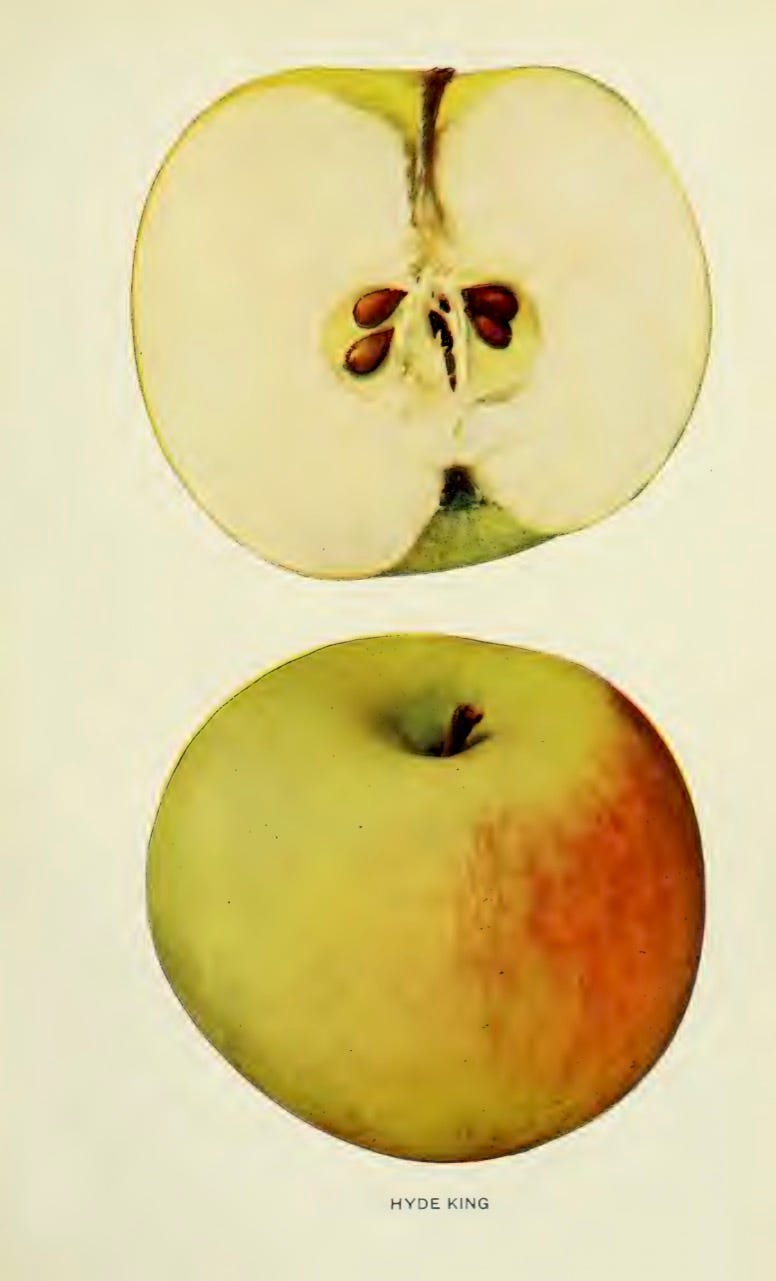
The names index of Apples of New York alone captures the imagination.
Canada Baldwin, Canada Reinette, Clayton, Dickinson, Doctor, Dumelow, Dutch Mignonne, English Russet, French Pippin, Gideon Sweet, Gilpin, Golden Medal, Golden Russet, Lankford, Titus Pippin, Tolman Sweet, Twenty-Ounce Pippin, Wagener, Walbridge, Westfield Seek-No-Further, White Pearmain, Winter Banana, Yellow Bellflower, ….
A great harvest follows quantitative multiplication - the power of number - from one to fifteen hundred, if you wish: from one to ten thousand. A great harvest also follows a multiplication of traits - the power of adaptation - from the old familiar native soil into the wide world.

The Latin verb augēre - multiply - leads to August - the multiplier - the nickname of Octavius Caesar. As a tribute, the eighth month was named after him. And the name of the eighth month became synonymous with bringing in and gathering the gifts of the earth. The 'oeghstmaent' in which multiplication - from one seed to many - takes hold.
Oeghstmaent [1278; Claes 1994b], te halven oweste [1277; Moors 1952:25], te jngaende auguste dat naest coemt ‘augustus a.s.’ [1289; CG I, 1378], in Augusto (ablatief) [1386; Moors 1952:13]; vnnl. aust [1509; WNT augustus II], augustus [1556; WNT], ougst [1550-1600; WNT].
Ontleend aan Latijn Augustus. Dit was de toenaam van de eerste Romeinse keizer Gaius Julius Caesar Octavianus (63 v. Chr-14 na Chr.). Hij ontving zijn eretitel in 27 voor Chr. en noemde zich vanaf dat moment Caesar Augustus. In 8 voor Chr. stemde Augustus erin toe dat de maand waarin hij consul was geworden en zijn belangrijkste overwinningen had behaald, naar hem augustus genoemd werd in plaats van sextīlis ‘(de) zesde maand’. Augustus betekent letterlijk ‘gezegend, geheiligd, verheven’ en is afgeleid van het werkwoord augēre ‘vermeerderen’.
Het woord verdrong de gebruikelijke Germaanse vormen, zoals Middelnederlands arenmaent ‘oogstmaand’ (overkomend met Gotisch asans ‘oogst’, nog bewaard in Duits Ernte ‘oogst’ en verwant met het Engelse werkwoord earn ‘verdienen’). De uit augustus ontstane vormen vertonen gedeeltelijk afslijting en hebben geleid tot het woord → oogst. In het West-Vlaams betekent oest zowel ‘oogst’ als ‘augustus’.
bron: etymologiebank.nl
In our local supermarket, there is a year-round supply of apples. It is not likely that an empty apple shelf will require a sign saying 'sold out' or 'please wait until the next harvest' or 'due to scarcity max. two apples per customer'. We are blessed to live in a time when the abundance of an annual harvest feast repeats itself on any given weekday. In the ordinary supermarket. Our ancestors could not have dreamt of it - this reality would be far beyond their imagination.
Apples every day of the year, as many as you like, at a bargain price. An unprecedented success story that does have several downsides. One is, that the range of varieties has been dramatically reduced over the last century. Where have the hundreds of varieties described and pictured in Apples of New York, Pomoma Herefordiensis, USDA Pomological Watercolours and Deutsche Pomologie gone? Peat the apple varieties you come across in the supermarket over the year, and you won't make the ten.
Over the past 50 years, agricultural practices have changed dramatically, with technological advances allowing large-scale crop production. But while crop yields have increased, biodiversity has decreased to the point that now only about 30 crops provide 95% of human food-energy needs. Only 10% of the rice varieties that China used in the 1950s are still used today, for example. The U.S. has lost over 90% of its fruit and vegetable varieties since the 1900s. This monoculture nature of agriculture leaves food supplies more susceptible to threats such as diseases and drought.
bron: time.com/doomsday-vault
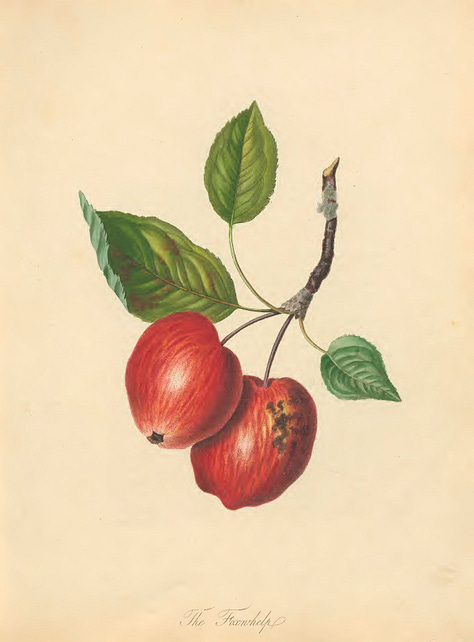
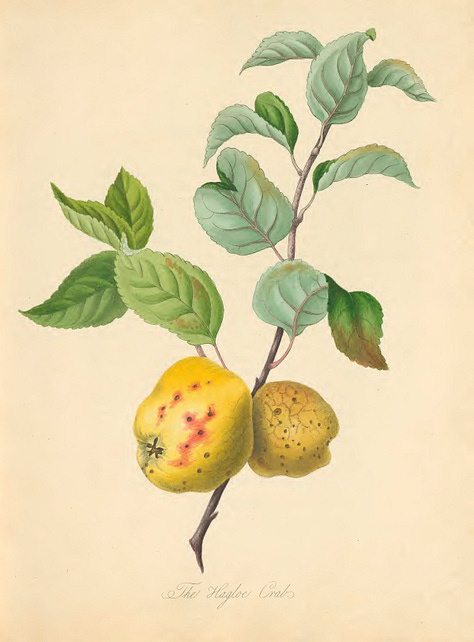

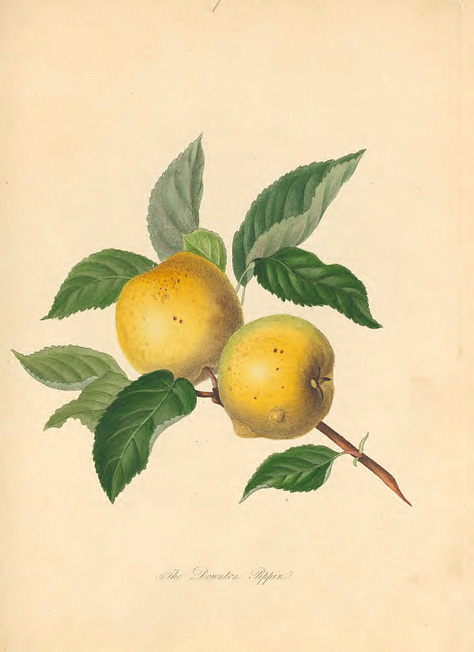
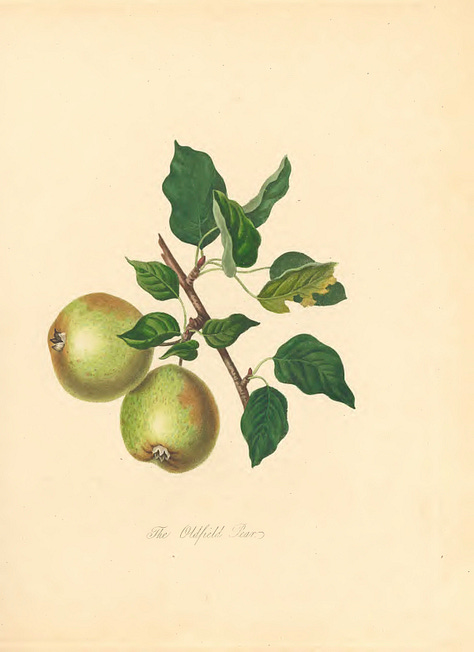
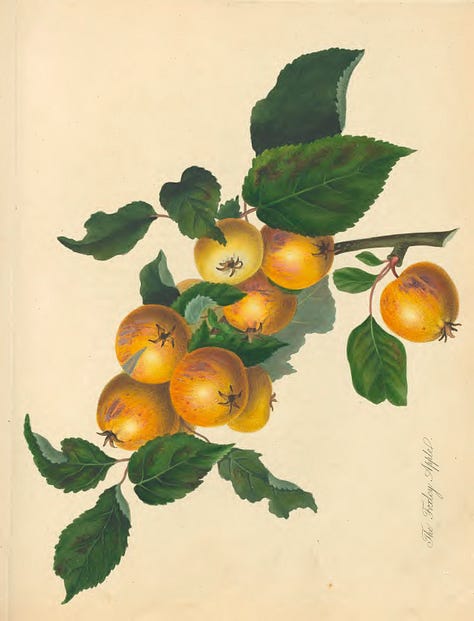
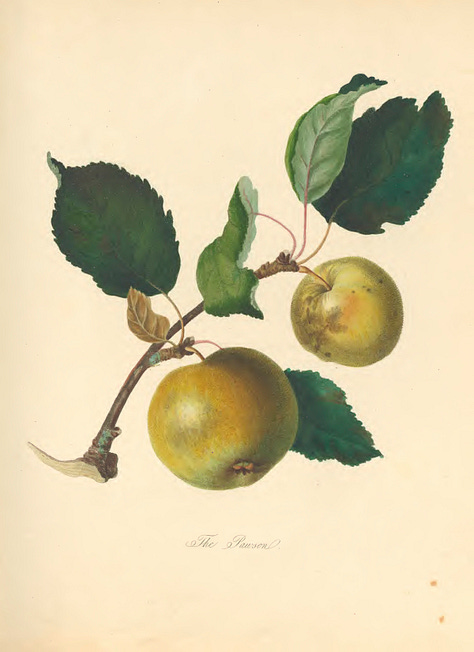

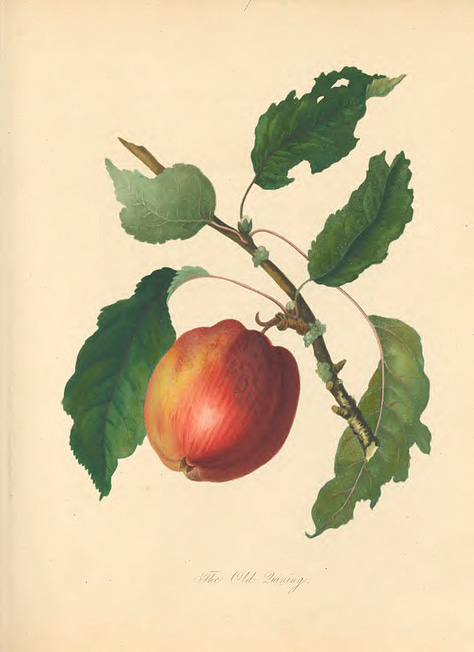
If breeders and food producers are to be believed, the Kanzi, Jazz and Fuji were developed to meet consumer taste and demand. There is no question about that - the customer is king. And the king simply likes sweet and simple, shiny and perfect, all of equal size, and, according to the food industry, is definitely not fond of any flavour variety.
And pity the king is rather short of memory. After all, how long has it been since, in orchard or marketplace, you could find the Alkmene, Beauty of Bath, Bismarck, Blenheim’s Orange, Bloemzoete, Blyers Bellefleur, Suikerappel, Brabantse Bellefleur, Bramley’s seedling, Canada Blanche Reinet, Citron d’ete, Coelhorst, Court Pendu Rouge, Danziger Kant, Dijkman’s Zoet, Doeke Martens, Dubbele Gele Bellefleur, Ecolette, Ekenstein Renet, Escadre Renet, Franse Reinette, Glorie van Holland, Golden Nobel, Grand Royal Jubilee, Grauwe Engelse Pippeling, Gravensteiner, Groninger Kroon, Ingrid Marie, Jacob Lebel, James Grieve, Judine, Juffers Kruidappel, Karakter Renet, Keuleman, Koningin Emma, Lemoen, Lobo, Lombards, Calville, Lord Suffield, Melrose, Notarisappel, Oberdiecks reinet, Ontario, Oranje Renet, Parmentier Renette, Peasgood Nonsuch, Peer-zoet appel, Peterselieappel, Pomme Rose, Pott’s seedling, Princess Noble, Queen Konings Pippin, Reine de France, Reinette van Aizema, Renet des Charmes, Ribston Pippin, Rode Astrakan, Rode Herfst-striebling, Rode IJzerappel, Rode Jonathan, Rode Kroon, Rode Pippel, Rode Tulpappel, Rode Zomercalville, Roosappel, Rother Ananasapfel, Schone van Boskoop, Schone van Nordhausen, Schutters Renet, Stark’s Earliest, Sterappel, Swaan, Tante Dora, Transparant Blanche, Veendammer Glorie, Vlaamse Schijvel, Wieneker Witte Wijnappel, Willem III, Winschoter Glorie, Winter Gold Permain, Winter Sijden Hempje, Witte Kruidappel, Witte Winter Calville, Witte Zomer Calville, Zigeunerin, Zoete Aagt, Zoete Ermgard, Zoete Gele Rennet, Zoete Hollaert, Zoete Kroon, Zoete Paradijs, Zoete Peppel, Zoete Rode Joop, Zoete Roemeling, Zoete Veentje, Zoete Veger, Zoete Zonappel, Zomer Sijden Hemdje, Zure Paradijs of de Zure Zonappel?
(offer of apple varieties on the website of op-goede-grond.nl)
to be continued tomorrow ...

